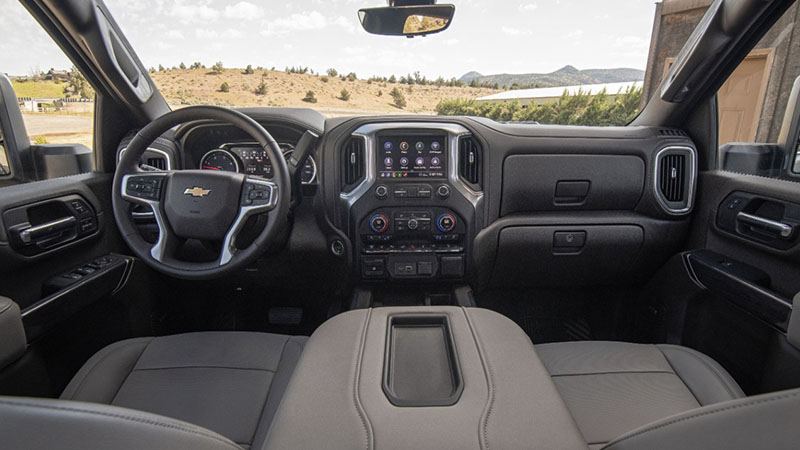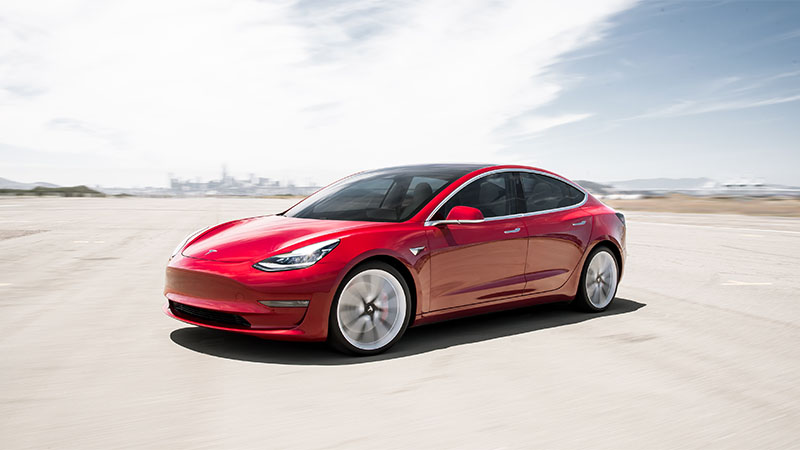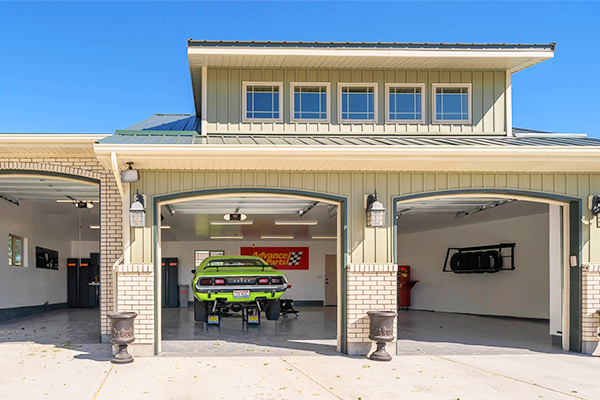If you're older than a certain age, chances are your family got around in a big Ford, Buick or Chevy sedan. It was the car you took on vacations, the car that Mom loaded up with groceries in the trunk once a week and possibly the car you drove around in high school. Sedans have been a part of American life for decades—big, roomy, comfortable and solid.
But that's all changing.

Source | Getty
A couple of years ago, Fiat-Chrysler killed off all of its car models except for the Charger, 300, and Challenger. Last summer, Ford announced that it, too, will discontinue all sedans and car lines except for the Mustang. General Motors followed suit, and the Buick Lacrosse, Chevy Malibu and Impala, and various Cadillac sedans will soon go bye-bye. Even the Accord and Camry are having a hard time finding buyers, with Toyota's RAV4 outselling the Camry for the first time ever. In 2017, sales of the Hyundai Sonata dropped by a third over the previous year, and sales of the Ford Fusion were torpedoed by 21 percent.
So why are traditional sedan cars no longer popular? What's driving these changes (no pun intended)? We'll take a look at the reasons cited by automakers.

Source | Getty
GAS PRICES
Gas prices have been trending down for quite a few years, and sales figures show a correlation between cheap gas prices and a drop in sales of fuel-efficient vehicles. Yes, gas prices still spike from time to time due to external factors, but they eventually come back down again — when adjusted against inflation, per-gallon gas prices are a lot lower than they were during the energy crisis of the 70s.
Overall, that means it costs about a third less to fill up your vehicle than it did a few years ago, and when gas is cheap, people don't feel bad about giving up fuel efficiency.
FUEL ECONOMY
Crossovers, pickups, and SUVs are getting better fuel economy than they ever have before. A Ford Explorer that would have had a V8 10 years ago is now more likely to have an EcoBoost V6 that puts out 300-plus horsepower and gets 25 mpg on the highway. The Dodge Ram, equipped with the EcoDiesel engine, can squeeze out 27 mpg out on the road, and minivans have been able to turn in that sort of fuel economy for some time. This all makes a sedan less of an attractive option.

2020 Chevy Silverado 2500HD | Chevrolet
TRICKED-OUT TRUCKS
Thirty years ago, trucks were designed for work and were generally pretty short on creature comforts. Things like power windows, upgraded interiors, and even A/C were scarce options on a truck from the '70s or '80s. Instead, you got rubber floor mats, a sticky vinyl seat, an AM radio and crank windows.
That's all changed, of course, and trucks and SUVs typically have a list of amenities that rivals the nicest sedans. Even if gas prices do go up, people aren't likely to go back to sedans and will probably swap their bigger trucks for smaller crossovers that have the same sets of options.

Source | Getty
YOUTH DISINTEREST
Having your own car just isn't as important to millennials as it was a generation ago. Cars aren't a part of one's identity like they once were; younger people often see them as just another headache.
Millennials are more likely to use public transit, Uber, or other ride-sharing services than to go into debt on a vehicle. When they do buy cars, they don't buy full-size sedans. In a time in which sedan sales are down, sales for a younger segment are down across the board, and sedans aren't profitable, something has to give.
BIGGER IS BETTER
Have you ever had to haul a couch or a washing machine and tried to do it with a car? A big sedan is roomy and comfortable, but crossovers, SUVs, and trucks are just more practical all the way around. Plus, drivers like the higher seating, enhanced visibility, ease of entry and exit, and overall ruggedness of trucks.
AUTOMAKERS ARE FUTURE-FOCUSED
This is all in the context of the long game, though. Automakers are thinking down the road to electric vehicles, hybrids, and self-driving autonomous cars, and a day in which private vehicle ownership may take a different direction than it does today. In regard to electric vehicles, chances are they'll take the same path as other emerging technologies have over the years: range, battery technology, and performance will improve and prices will come down (remember what a 43-inch flatscreen TV cost in 2009?).

Source | Tesla
So what does that mean for the fortunes of Detroit, European, and Asian car companies?
Closing down entire product lines will mean mothballing the plants where they're made, and a loss of more jobs in the automotive sector. The jobs that will be in demand will be more advanced-manufacturing roles that require a broad set of high-tech skills. And, there's always a chance that international events could cause a longer-term spike in oil prices, making those bigger vehicles suddenly seem a lot less appealing.
Of course, if you're still interested in sedans, there's a good chance you can lease or buy a discontinued Chevy, Buick, or Ford sedan at fire-sale prices.








